
The study had a goal to provide a personalized treatment approach, including ASM dosage changes to prevent seizure worsening and optimizing the balance of outcomes for mothers and children.

The study had a goal to provide a personalized treatment approach, including ASM dosage changes to prevent seizure worsening and optimizing the balance of outcomes for mothers and children.

Patients with chronic migraine on 60-mg once-daily and 30-mg twice-daily atogepant demonstrated reductions of 6.88 and 7.46 monthly migraine days, respectively, over a 12-week period.

The staff neurologist and medical director of the Barlo Multiple Sclerosis Program at St Michaels Hospital provided insight on the tolebrutinib’s mechanism of action, and new data presented at ACTRIMS Forum 2022. [WATCH TIME: 4 minutes]

Data from the 24-week, multicenter LibraTN trial are expected to be reported in the first half of 2024.
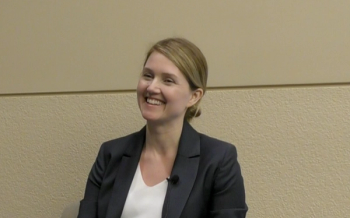
The staff neurologist at Cleveland Clinic’s Mellen Center for Multiple Sclerosis Treatment and Research offered her insight into improving the recognition of autoimmune encephalitis. [WATCH TIME: 2 minutes]

Bruce Bebo, PhD, outlined findings from a recent analysis presented at ACTRIMS Forum 2022, with investigators concluding costs associated with the disease have previously been underestimated.

The cohort study was conducted in Taiwan, with investigators also observing changes over time in the influence of sex, stroke type, and copayment exemption type of rehabilitation utilization.

In the EVOKE study (NCT02924129), the spinal cord stimulation system demonstrated superior pain relief compared to open-loop SCS at 12 months with no increase in pain medication.

The assistant professor of pediatric neurology at Washington University in St. Louis provided an overview of cerebral palsy and ways to reduce the risk of developing the condition. [WATCH TIME: 3 minutes]
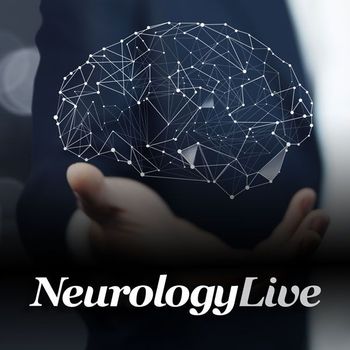
Infection-related epilepsy etiology, experiencing multiple types of seizures, and cognitive impairment were independent influencing factors on perampanel use retention.
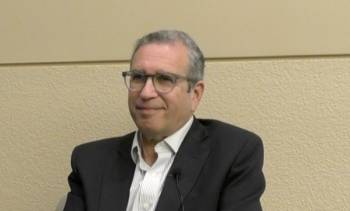
The William S. and Lois Stiles Edgerly Professor of Neurology and Professor of Immunobiology, and Neurologist-in-Chief at Yale-New Haven Hospital spoke to the findings of a recent assessment of T cells in multiple sclerosis. [WATCH TIME: 4 minutes]

The staff neurologist and medical director of the Barlo Multiple Sclerosis Program at St Michaels Hospital provided insight on the use of biomarkers to improve management of RIS and uncover more as it relates to MS.

Data provide an update to the post-approval safety profile of cladribine tablets in patients with relapsing MS in reference to COVID-19 infections.

Investigators also found that this association was particularly pronounced among those living in nursing homes, as well as in Asian, Black, and Hispanic populations.
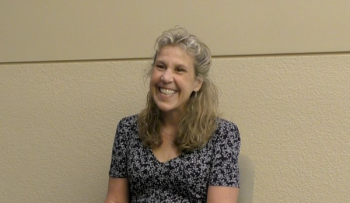
Leigh Charvet, PhD, professor of neurology, NYU Grossman School of Medicine, discussed the potential feasibility of at-home tDCS for patients with multiple sclerosis to boost cognitive training. [WATCH TIME: 2 minutes]

The neurodegeneration program lead at Genentech offered his perspective on the phase 3 SKYLINE trial and the historical data on gantenerumab ahead of this new clinical assessment.
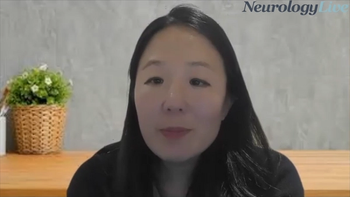
The staff neurologist and medical director of the Barlo Multiple Sclerosis Program at St Michaels Hospital discussed the lack of guidelines for patients with RIS and the research efforts needed going forward to establish them.

More than half of the patients with episodic migraine considered the likelihood of migraine on day 1 postdosing to be as important as the reduction in migraines in the days to follow.

With the Parkinson’s Foundation recently being granted Joint Accreditation and announcing a new and free CME course, James Beck, PhD, senior vice president and chief scientific officer of the organization, commented on the pivotal role genetic testing can play.

Previously reported data show patients with multiple sclerosis treated with anti-CD20s have reduced response to COVID-19 vaccines, but there has been limited research on MS outcomes among vaccinated patients.

The staff neurologist and medical director of the Barlo Multiple Sclerosis Program at St Michaels Hospital discussed her presentation at ACTRIMS Forum 2022 involving imaging biomarkers of RIS/MS prodrome. [WATCH TIME: 4 minutes]

Factors such as fear of negative consequences, attention and anticipation, and fear-avoidances were identified using the newly developed Fear of Attacks in Migraine Inventory questionnaire, which may have use in clinical settings.

The director of the VA Southwest Parkinson’s Disease Research, Education, and Clinical Centers and clinical professor of neurology at UCLA spoke to the importance of understanding the challenges specific to women with Parkinson disease. [WATCH TIME: 8 minutes]

Here's what is coming soon to NeurologyLive®.

Mobile stroke units led to a higher proportion of intravenous thrombolysis among patients with acute ischemic stroke, of whom up to one-third were treated within 60 minutes of symptom onset.

The senior vice president and chief scientific officer of the Parkinson’s Foundation spoke on the initiative, which offers free genetic testing and counseling for patients with Parkinson disease. [WATCH TIME: 2 minutes]

Test your neurology knowledge with NeurologyLive®'s weekly quiz series, featuring questions on a variety of clinical and historical neurology topics. This week's topic is nutrition in multiple sclerosis.

A third dose enhanced the number of responders to all variants and significantly increased CD8 T-cell responses, but the frequencies of Omicron-specific CD8 T-cells remained 70% of the responses specific to the vaccine strain.
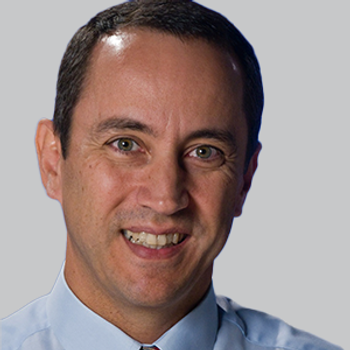
Data were analyzed from the AFFINITY study cohort, which included men and women recruited within 2 weeks of stroke onset in Australia, New Zealand, and Vietnam.

Results from the preliminary study investigating the safety of the ketogenic diet for patients with MS were announced ahead of the AAN Annual Meeting in April 2022.